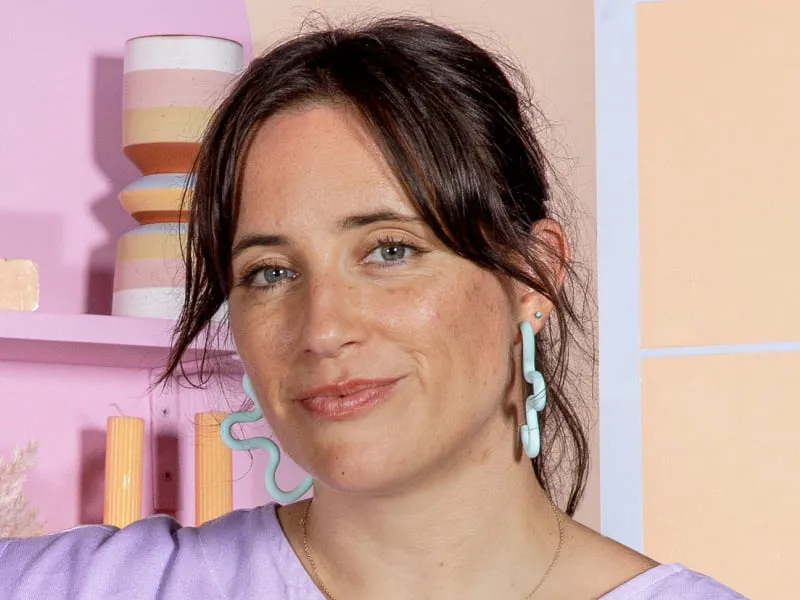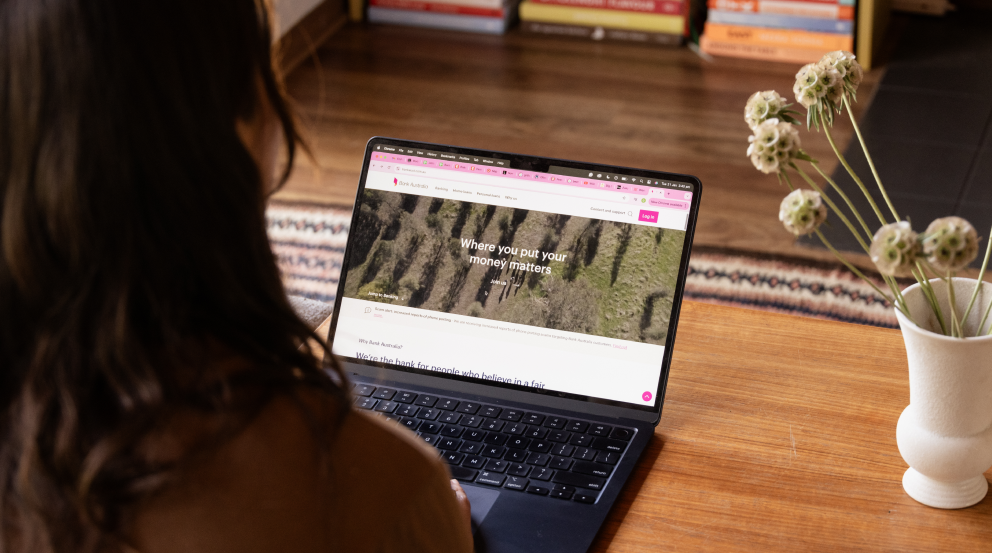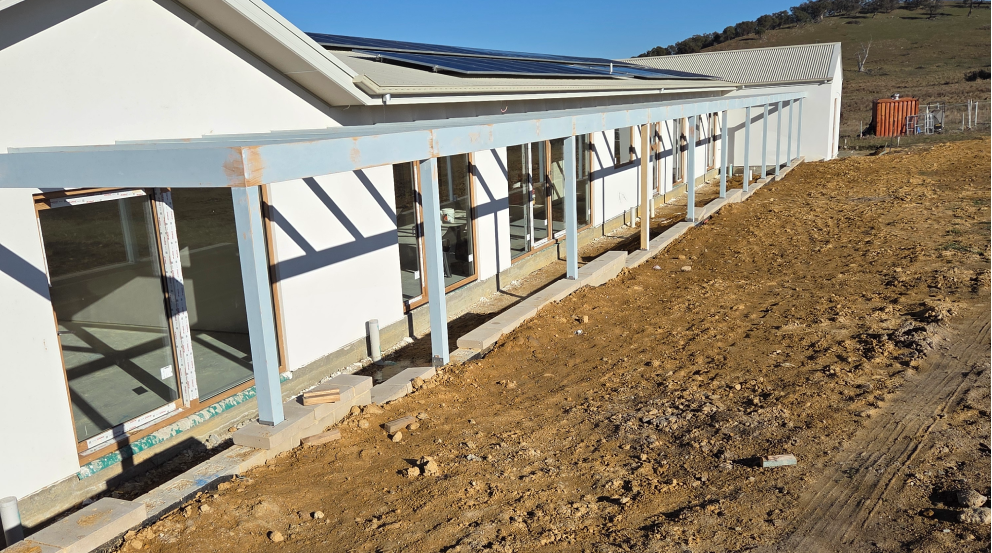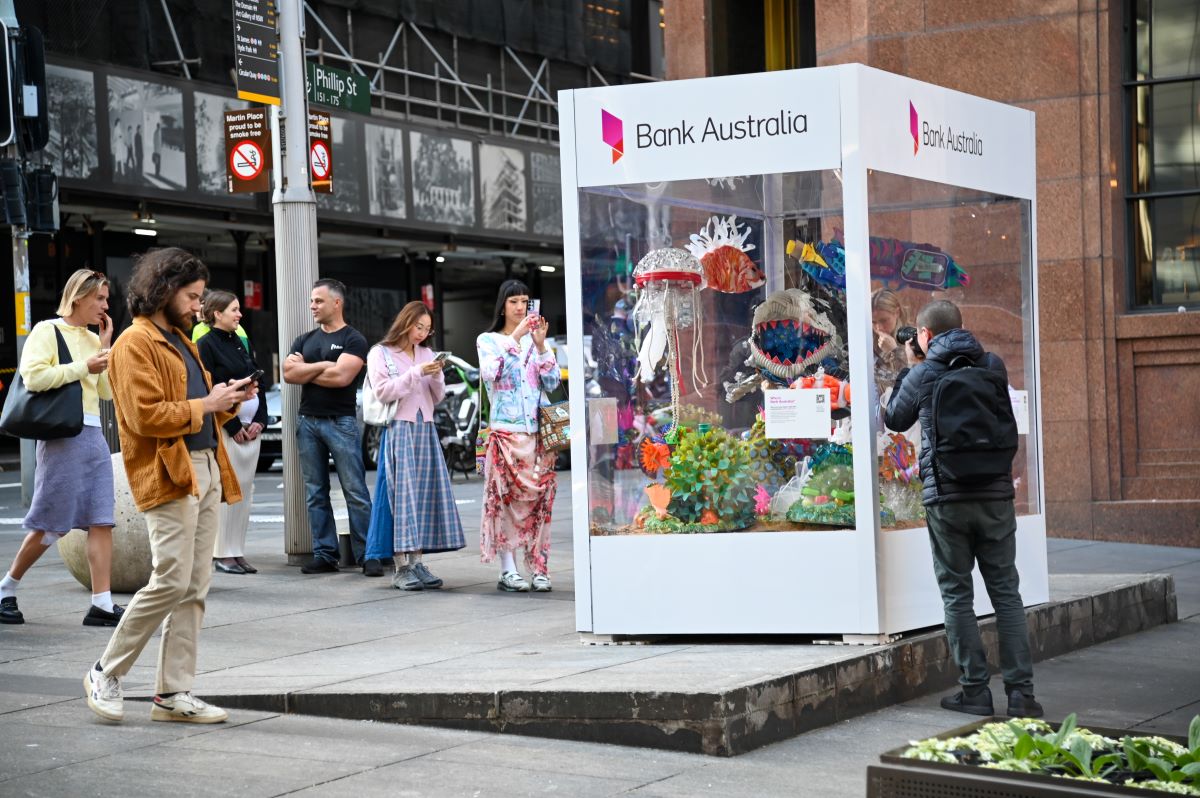Setting aside (or supplementing) a salaried job to carve out a freelancing career can be both exhilarating and daunting. The flexibility! The possibilities! The….tax requirements? We chatted to two freelancers to find out how they manage their budgets, their mental bandwidth, and everything in between.
The way we work is changing. According to ABS data, around one million Australians – 7.5% of the workforce – now do some sort of freelance work.
So, what is freelancing? Freelancers are independent, self-employed contractors who do specific work for a range of clients without committing to full-time employment. While this model of work can bring significant benefits in the way of flexibility and agency, it can also be somewhat challenging when it comes to money and budgeting.
We spoke to two freelancers about the tools and strategies they use to manage their workload, cashflow, and mental capacity.

Karlee knows their worth and prioritises wellbeing
Bank Australia customer Karlee Sangster has been freelancing for as long as they can remember. Even when they took on a stable ‘main’ job, they always had a few side hustles on the go, from art therapy to freelance writing and making ceramics.
The key thing they’ve learned about making freelance work, well, work is to prioritise their wellbeing. “The whole glamorisation of grind culture, multitasking and always having something on the go is a recipe for burnout,” they say. “It can be very alluring to be your own boss, but the reality is you can quickly get sucked into working all the time, especially if it's something you love and are passionate about.”
Here are some practices that work for them:
- Accounting and charging for their time: “You might not charge for a five minute phone call, but if you have 12 of those across your week, you've done yourself out of an hour of pay,” Karlee says.
- Automating admin: “I'm a big fan of Google Calendar, because it's free and it's accessible,” they say. “You can block out time and set it to auto decline things, which can save those back-and-forth emails to find a meeting time. I also automate all of my recurring bill payments, and ask up front about a client’s pay cycle so I know when to expect or chase money.”
- Separating their work and life accounts: “Having a secondhand work phone buys me freedom, time and space away from work,” Karlee says. “I know when my personal phone rings it's pleasure, and I can pick up and pay attention to it. I also have a separate work bank account, and use the Bank Australia app to categorise my spending.”
- Staying on top of tax requirements: “I set up a reminder in my calendar every three months that blocks out three hours to do my PAYG and BAS, so it doesn’t creep up. I email myself receipts and drag them straight into my tax folder, and try to stay aware of any government schemes or incentives I’m eligible for, like free household NBN because I have a school-aged child in Victoria.”
- Talking about money without shame: “This can be as simple as asking people around you doing similar things how much they charge, or asking if something is a paid opportunity,” Karlee says. “Ask questions about a job’s parameters and budgets, speak up about your time and what that’s worth and remember you can renegotiate those terms. It helps to keep in mind that expectations are only expectations if you've communicated them – otherwise they're secrets.”
For those new to freelancing, Karlee has one key piece of advice: “Start as you intend to continue,” they say. “If you decide to have no boundaries at the start until you’ve made a name for yourself, then you’ll create an expectation for your clients in the long run.”

Louise builds in breaks and manages uncertainty
Louise Brough is a Bank Australia customer and Moody Incense co-founder who has been freelancing as a creative branding specialist since 2019.
Louise is often trying to manage the uncertainty that comes with working on contracts. “Freelancing is just really riding the wave of not knowing,” she says. But flexibility is a constant motivator. “I love working at night time, and I only work four days a week so I can dedicate a day to creative projects or seeing my friends and family,” she says.
Here are some practices that work for her:
- Accounting for not having salary benefits: “With freelancing, you don’t get sick leave, holiday leave, parental leave or automatic super, so you need to factor all of that into your costs and planning,” Louise says.
- Finding a money tracking system that works for her: “I set up a colour-coded spreadsheet from scratch to track my income, expenses and payments,” she says. “Having my own records helps to give me a sense of control.”
- Being aware of key dates and deadlines: “Before freelancing, the end of the financial year was something I never considered,” Louise says. “Now it’s an important date. It's a really good time to get a sense of how much I actually made and how much I spent.”
- Using a professional accountant: “I've been confused between total income and gross profit in the past, and sometimes my numbers wouldn’t match up on my spreadsheets. Now I pay an accountant to do my tax for me and I pay my BAS every quarter. Having that help has saved me so many hours trying to sort through it myself.”
- Having a ‘holiday buffer’ where possible: “I’m trying to work to a 10-month calendar, so I can give myself a buffer for a month and take a month off,” Louise said. “Last year, I took a month off to go to Nepal, but because I couldn’t say yes to new projects and it took me a while to resettle when I was back, it was more like two or three months off.”
- Continuing to talk openly about money: “Years ago, I chatted with friends and got a sense of what they were making, but I didn't keep asking. When I chat with my salaried friends now, four years on, they've all had quite large pay increases, which I hadn't taken into consideration. I do think it's important to always be getting a sense of what other people are making.”
If you’re a freelancer looking for different ways to budget or quote for work, Louise says one thing has made a key difference. “One big game changer has been having a financial goal, which I didn't have previously,” she says. “I had no sense of how that looked annually, whereas now, I’ll put how much I want to make this year into my spreadsheet and look at: how much does that work out to be per month? How many hours do I then need to work, and what do I need to charge per hour, to make that? It’s been really helpful in working it out.”
Note: This article does not constitute financial advice, and is intended to be general only in nature. For specific advice for your individual circumstances, speak to a qualified financial advisor.



.png)




